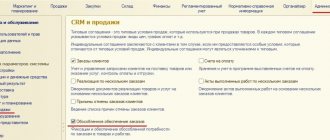In 2021, separate divisions of many enterprises can experience the beauty of communicating with tax inspectors. The fact is that from 2021, all separate divisions (including branches and representative offices) that issue payments and rewards to individuals will be required to independently calculate and pay insurance premiums, as well as submit calculations for them to the Federal Tax Service. In addition, additional responsibilities have appeared for head offices that have separate divisions (including branches and representative offices). Let's figure out what exactly has changed and how it will affect organizations.
What is a separate division: introductory information
Any Russian organization has the right to open one or more separate divisions. They may be branches and representative offices of a legal entity. At the same time, separate divisions (that is, branches and representative offices) are not legal entities and are deprived of the legal capacity inherent in legal entities. This follows from Article 55 of the Civil Code of the Russian Federation.
It is also necessary to say about the Tax Code of the Russian Federation. It follows from Article 11 of the Tax Code of the Russian Federation that a separate division must be located at an address different from the address of the main organization and have stationary jobs, that is, jobs created for a period of more than one month.
Thus, we can say that a separate division of a legal entity is a branch, representative office or stationary workplace (Article 55 of the Civil Code of the Russian Federation and Article 11 of the Tax Code of the Russian Federation).
Below in the table we will explain some of the features of the types of separate divisions.
| Branch | Representation | Stationary workplace |
| The branch carries out all or part of the functions of the main organization. Performs representative functions. | The representative office represents and protects the interests of the main organization. | The employee carries out his labor activity at the workplace. |
| The branch can conduct commercial activities. | The representative office cannot conduct commercial activities. | Cannot conduct commercial activities. Only labor relations. |
| Information about the branch must be contained in the Unified State Register of Legal Entities. | Information about the representative office must be contained in the Unified State Register of Legal Entities | Information is not included in the Unified State Register of Legal Entities. |
Registration of separate divisions with the Federal Tax Service
If a separate division is a branch or representative office and information about it is indicated in the charter and in the Unified State Register of Legal Entities, then at the location of this unit the organization will be registered with the Federal Tax Service automatically based on information from the Unified State Register of Legal Entities (clause 3 of Article 83 of the Tax Code of the Russian Federation).
If a separate division is not a branch or a representative office, but a workplace, then within a month from the date of its creation the organization itself must register with the Federal Tax Service at the location of such a division (clause 3, clause 2, article 23, clause 4 Article 83 of the Tax Code of the Russian Federation). To do this, you need to submit to the Federal Tax Service at the location of the organization itself a message about the creation of a separate division in form No. S-09-3-1. These rules have been in effect previously and will continue to apply in 2021. However, from 2021, organizations with separate divisions will have new responsibilities.
If the company has several divisions in one region
If an enterprise has several OPs on the territory of one constituent entity of the Russian Federation, then it may not distribute the tax base between them (paragraph 2, paragraph 2, article 288 of the Tax Code of the Russian Federation). The share in the company’s tax base is determined for the entire set of OPs located in one region. The taxpayer independently chooses the OP through which the tax will be paid. You can also use a standard scheme, when the share of income tax for a separate division is determined separately for each of them.
You can also pay the entire “regional” tax through a state enterprise if it is located in the same subject of the Russian Federation. The selected option must be fixed in the accounting policy and reported to the tax authorities no later than December 31 of the year preceding the payment period. In case of changes in the payment regulations due to the creation of new or liquidation of existing OPs, the organization must notify the tax authorities about this within 10 days after the end of the reporting period.
New responsibilities of parent organizations from 2017
From 2021, parent organizations are required to notify the Federal Tax Service at their location that their separate divisions (including branches and representative offices) in 2021 (subclause 7, clause 3.4, article 23 of the Tax Code of the Russian Federation):
- received the right to accrue payments and rewards to individuals;
- lost the authority to accrue payments and rewards to individuals.
The Tax Code of the Russian Federation allows one month for notification to the tax authority to the parent organizations from the date of vesting (or deprivation) of the “separateness” with the specified powers or their loss.
Please note: the new obligation to send these messages has been introduced only in relation to those separate divisions to which the corresponding powers have been transferred or taken away from them after January 1, 2021. There is no need to transmit messages to the Federal Tax Service regarding separate divisions (branches, representative offices) that accrued payments and rewards before 2017. This is provided for in paragraph 2 of Article 5 of the Federal Law of July 3, 2016 No. 243-FZ.
What has changed in the new year
In NK, in Art. 23 (clause 3.4, subclause 7) the legislator indicates that starting from 2021, the main enterprise with a branch or representative office is obliged to notify the Tax Service at its location that:
- gives the OP the right to accrue income to its employees or other persons with whom it has entered into labor relations;
- deprives the OP of the authority to accrue payments and rewards to individuals.
Article 23. Responsibilities of taxpayers (payers of fees, payers of insurance premiums)
To send a message to the main enterprise, the legislator gives 1 month from the moment it gave or took away such powers from its OP. In NK, in Art. 84, a new clause 3.1 also appeared, the provisions of which came into force in 2021. It says that the tax inspectorates at the location of the OP need to keep records of their powers that the main enterprise can grant them.
Tax authorities are also required to transmit information to the Funds at the location of the OP within 3 days that the branch or representative office:
- vested or deprived of the right to make payments to employees;
- changes its location;
- ceases operations and closes.
The obligation for main enterprises to send messages has been introduced only in relation to divisions to which powers are issued (withdrawn) in 2021. If an enterprise has a branch or representative office that, until 2021, operated on a dedicated balance sheet, accrued and paid income to employees, report it The tax authorities don't need it. Other innovations relate specifically to separate units.
According to Federal Law No. 212, Art. 15, part 11, previously independent deductions for SV and submission of reports to the Funds were carried out only by those OPs that:
- had their own current accounts;
- were on a separate dedicated balance sheet;
- made income payments to individuals.
The deadline for submitting SZV-M for July 2021 is set no later than August 10, 2021 and this deadline is not postponed to the next day. You can find out the deadline for submitting the Pension Fund report for 2021 from here.
Now, reports are submitted and insurance premiums are paid by separate divisions in 2021 only on the sole condition that they accrue payments to individuals. In fact, by conducting partial accounting, the OP can only accrue income, and the main enterprise will pay them.
In this case, the OP does not need to maintain a separate balance sheet and have his own bank account. If the main enterprise does not want the OP to pay the fees himself, it has the right to issue an order to deprive him of such powers. In other cases, an order granting powers is issued.
How parent organizations can fulfill their new responsibility
After January 1, 2021, the parent organization has the right to transmit to the Federal Tax Service a message about vesting a separate division (including a branch or representative office) with the authority to calculate payments and remunerations in favor of individuals (or about depriving such authorities) (clause 7 of Article 23 of the Tax Code of the Russian Federation):
- by mail;
- in electronic form via telecommunication channels;
- through the taxpayer’s personal account.
The Federal Tax Service is obliged to approve the procedure for transmitting such messages to the Federal Tax Service in electronic form and the forms of “paper” messages. This is provided for in paragraphs 3 and 4 of paragraph 7 of Article 23 of the Tax Code of the Russian Federation.
A separate division is vested with the authority to accrue payments and rewards to individuals from the date of issuance of the relevant order or instruction of the parent organization.
The form of notification of a Russian organization - payer of insurance premiums about vesting a separate division (including a branch, representative office) with powers (about deprivation of powers) to accrue payments and rewards in favor of individuals was approved by Order of the Federal Tax Service of January 10, 2021 No. ММВ-7-14/4 .
Changes for separate divisions since 2017
When transferring the rules on insurance premiums from Federal Law No. 212-FZ of July 24, 2009 to the Tax Code of the Russian Federation, legislators decided that separate divisions will deal with insurance premiums much more often in 2017.
From January 1, 2021, Federal Law No. 212-FZ dated July 24, 2009 “On insurance premiums” loses force. According to Part 11 of Article 15 of this law, until 2021, only those separate divisions that simultaneously:
- had bank accounts opened for themselves;
- had their own balance sheet, separate from the main office;
- accrued various payments and rewards to individuals.
Thus, until 2021, the three specified conditions had to be simultaneously met. But since 2021 the situation has changed. For a separate unit to have the obligation to submit reports to the Federal Tax Service and pay insurance premiums, legislators left only one criterion - the accrual of remuneration to individuals. This follows from the new provisions of paragraphs 7 and 11 of Article 431 of the Tax Code of the Russian Federation. Also see “Insurance premiums from 2017: overview of changes.”
Thus, the obligation to pay insurance premiums and submit calculations for insurance premiums by separate divisions in 2017 arises regardless of the presence of:
- separate balance;
- an open bank account.
It is possible that some accountants will have a logical question: “can the parent organization in 2021 independently submit reports and pay insurance premiums for its separate divisions that pay payments and rewards to individuals”? In our opinion, it will be impossible to do this in 2021. The fact is that the provisions of the Tax Code of the Russian Federation in force since 2021 do not provide that the parent organization has the right to “assume” the responsibility for paying insurance premiums and submitting settlements for its “separate entity”, which accrues payments and rewards to individuals.
From 2021, separate divisions that calculate payments and rewards to individuals must submit calculations of insurance premiums to the Federal Tax Service at their location using a new form approved by Order of the Federal Tax Service of Russia dated October 10, 2016 No. ММВ-7-11/551. RSV-1 will not be submitted to the UPFR from 2021.
We also believe it would be advisable to consider one more situation. Let’s assume that until 2021, a separate division of the organization did not have a separate current account and balance sheet, but accrued payments and rewards to individuals. Until 2021, such a unit, by virtue of the law, did not have to independently pay insurance premiums and submit RSV-1 calculations to the Pension Fund of the Russian Federation. The parent company did this for him (Part 11, Article 15 of Federal Law No. 212-FZ of July 24, 2009). However, by virtue of paragraph 11 of Article 430 of the Tax Code of the Russian Federation, starting from 2021, such a division is obliged to independently transfer insurance premiums and submit reports on insurance premiums to the Federal Tax Service. If the parent organization does not want the separate division to do this, then it will be necessary to issue an order “On depriving the separate division of the authority to accrue payments and remunerations in favor of individuals.” And report this to the Federal Tax Service within one month (Part 7, Clause 3.4, Article 23 of the Tax Code of the Russian Federation as amended, effective from 2021).
For foreign separate divisions, insurance premiums are paid and reports are submitted by the head office. This approach has been used before and will be used in 2021. The changes discussed in this article apply exclusively to separate divisions of Russian companies.
Where to pay insurance premiums for a separate unit abroad
In situations where an institution opens a branch abroad, different rules apply for contributions for separate divisions in 2020. There is no difference here whether the branch is allocated a separate balance, whether it has its own current account, whether salaries are calculated in the branch itself or not. Insurance premiums in 2020 for separate divisions located outside of Russia are always transferred to the location of the main organization. This norm is prescribed in paragraph 14 of Article 431 of the Tax Code of the Russian Federation.
Example. The “Head Office” in Moscow registered a branch “Belarus Branch” on the territory of Belarus. Where should insurance premiums be paid for a separate unit? To the Federal Tax Service and the Social Insurance Fund for the city of Moscow. Details can be found on the official websites of regulatory authorities. Don’t forget to indicate the correct BCC; this year there are new codes for OPS, compulsory medical insurance and VNiM.
How tax authorities and funds organize accounting for separate divisions
Since 2021, Article 84 of the Tax Code of the Russian Federation, dedicated to the rules for tax registration, has been supplemented with clause 3.1. It stipulates that tax inspectorates at the location of the “isolations” are required to keep records of data on their powers to make payments to individuals. This is based on messages from payers mentioned above.
Also in 2021, a package of amendments to the Tax Code was adopted (https://asozd2.duma.gov.ru/main.nsf/(SpravkaNew)?OpenAgent&RN=11078-7&02), obliging tax authorities to report electronically to the Pension Fund of the Russian Federation, the Social Insurance Fund and FFOMS information on tax registration of companies at the location of their separate divisions in 2021, which make payments and other remuneration to individuals (new sub-clause 15, clause 1, article 32 of the Tax Code of the Russian Federation). Starting from 2021, tax authorities are required to inform the above funds within three days:
- on the vesting of “single-parties” (including branches and representative offices) with the powers to calculate payments and remunerations, as well as on the deprivation of such powers;
- on a change of location to a “separate” location (exception: branches and representative offices);
- on the closure of such separate divisions.
Read also
27.07.2016
Features of paying tax when closing a unit
Please note that the income tax when closing a separate division depends on whether it acted as a tax payer or was one of several OPs in the region, the tax for which was paid through another branch.
So, if the OP was a tax payer, in this case it is necessary to submit updated income tax returns for the separate division and the SOE for the period preceding the closure period. The report must exclude advance payments for those payment terms when the unit will no longer operate. Since the total amount of advance payments for the enterprise should not change, they should be added to the advances of the state enterprise (letter of the Ministry of Finance of Russia dated February 24, 2009 No. 03-03-06/1/82).
In periods after the closure of a division, the tax base is distributed without taking into account the base for the closed branch. If, by the end of the tax period, the tax base has decreased (or a loss has been incurred), then an overpayment of advance payments to the regional budget at the location of the closed OP may result. The amount of overpayment in this case can be offset or returned on a general basis in accordance with Art. 78 Tax Code of the Russian Federation.
If a separate division has been closed, the profit tax for which was not paid separately, then there is no need to submit an updated declaration; the tax continues to be paid by the responsible OP of the region. In the following reporting periods, the indicators of the closed OP are also not taken into account when distributing the profit base.
Subsequently, until the end of the tax period, income tax declarations of a closed separate division are submitted at the place of registration of the parent company (clause 2.7 of Appendix No. 2 to the order of the Federal Tax Service dated October 19, 2016 No. ММВ-7-3/572).
Also see “Deadlines for filing income tax returns in 2021.”









